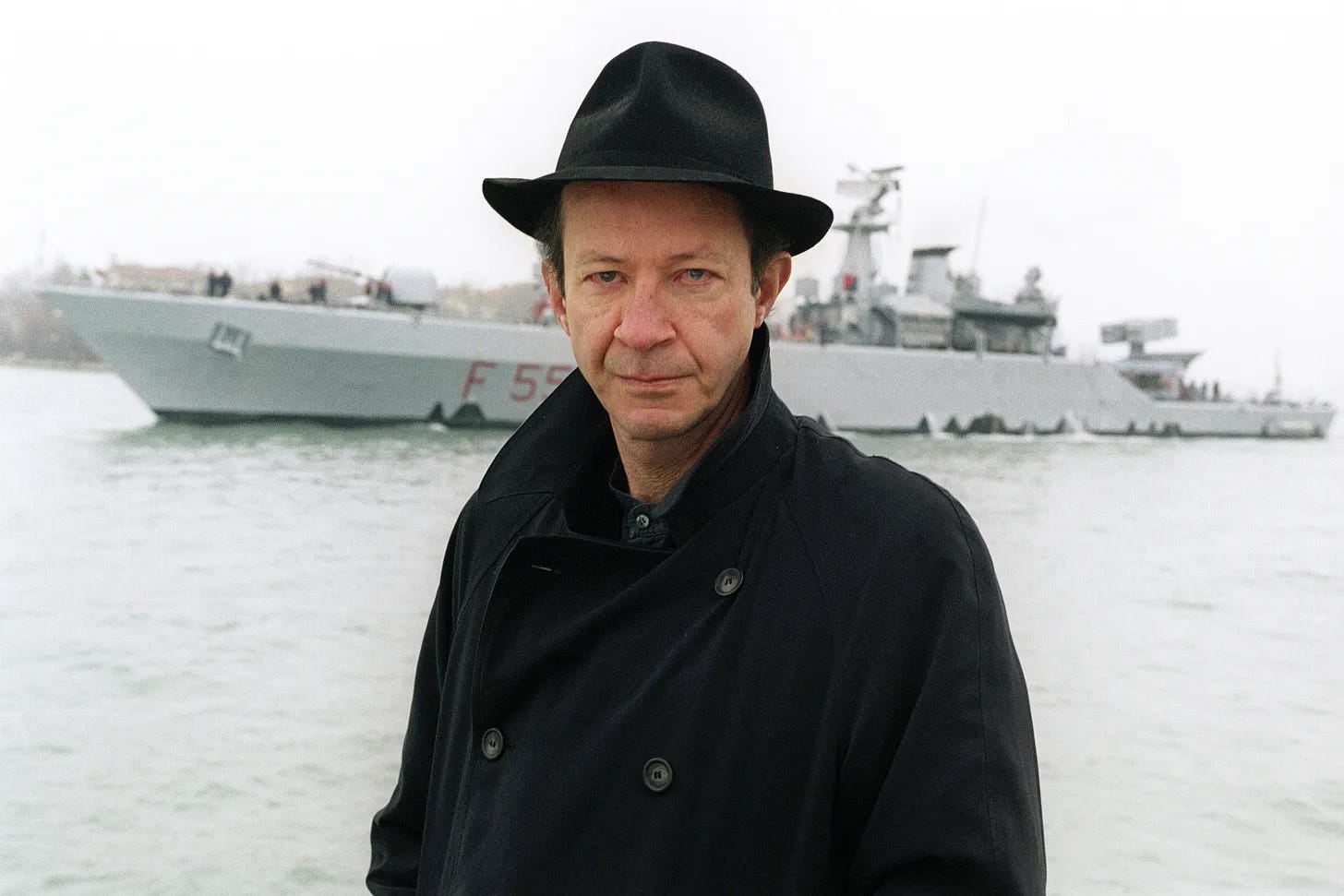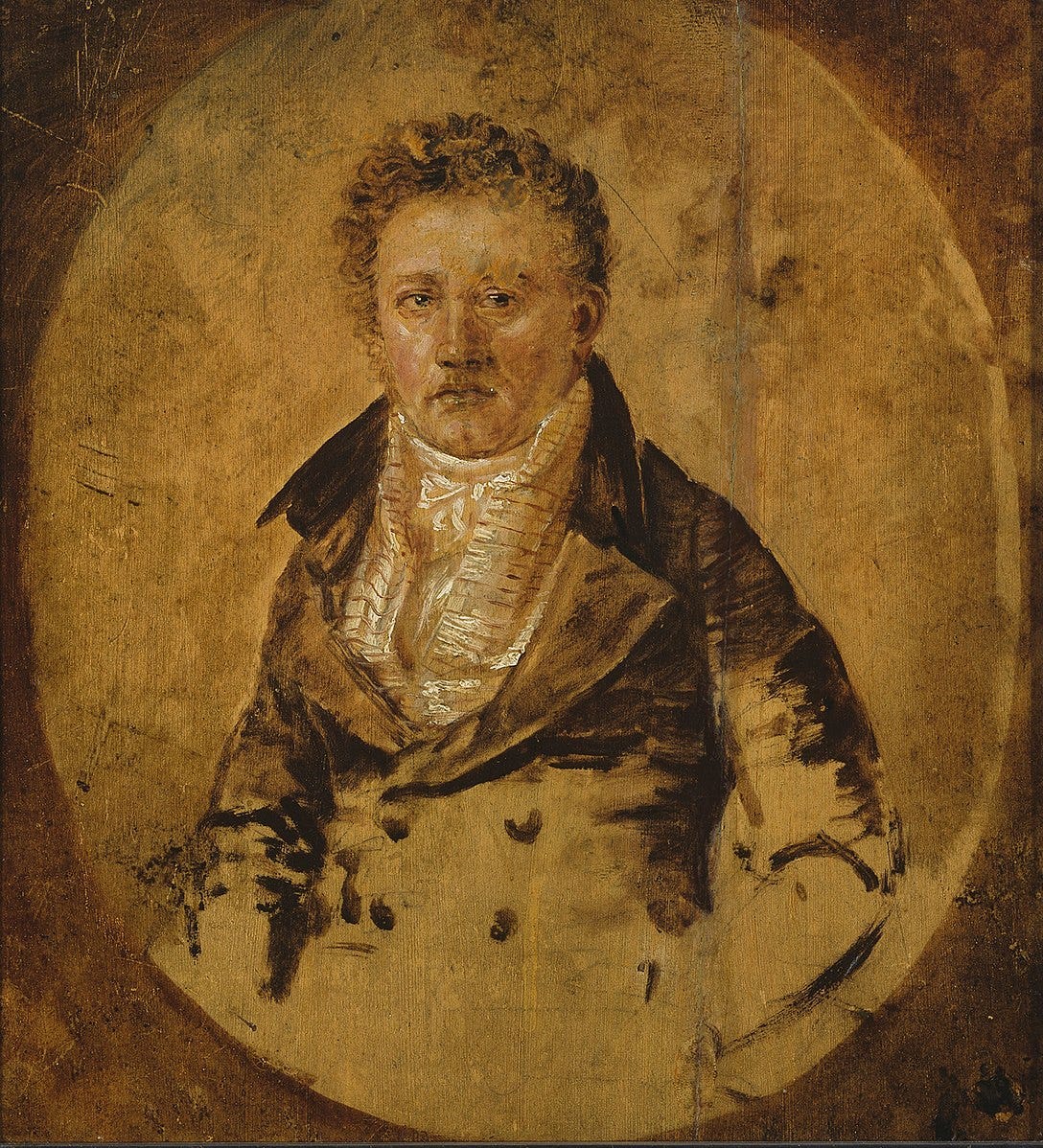Dear Friends,
I’m sharing a ‘Manifesto’ post. These stem from being unhappy about something or other. In this case, it’s a somewhat discursive reflection on an important topic that I wouldn’t claim to fully understand.
Best,
Sam
BARE EXISTENCE
There are all sorts of philosophical, ‘abstract’ ideas that make me deeply unhappy — the Pareto distribution, Schmitt’s political theory of order for its own sake. The one I’ve come across recently that has done a number on me is Agamben’s theory of bare existence.
In Agamben’s construction, class becomes something very different from how we tend to think about it — the old division between upper, middle, and working classes starts to seem ridiculously quaint; as, even, does the even older division between rich and power. In Agamben, class becomes above all an extension of power. There are those who are part of the matrix of power and then there are those whom power has less interest in, except for purposes of manipulation, and they are consigned to ‘bare existence.’
Over the course of my day, I pass any number of people doing difficult, menial work for extraordinarily little pay — and, in my head, ever since I came across Agamben, flashes the phrase ‘bare existence.’ In the course of my daily search for bare existence, what I find myself observing isn’t so much the type of work or the status of the work as the expression of the person doing it. People in traditional blue-collar jobs seem often not to be in bare existence, particularly if they have union protections — they argue, set schedules, make things difficult for customers. People in ‘service jobs’ aren’t necessarily in bare existence — people chat with customers, relax during the downtime; in other countries, it can be pretty normal for a waiter to sit down while taking an order; for a driver to, say, ask the customer to wait while he runs an errand or two. But there is an expression that people get in certain kinds of jobs — in corporate drug stores, at fast-food chains — that lets the customer know that this is ‘bare existence,’ that chit-chat isn’t welcomed, and that, actually, chit-chat is insulting, an attempt to mollify the reality of the situation, which is the relationship between power and bare existence.
I always get a terrible feeling whenever I’m in any of these places — a sense that something really irrevocable is being done to the human spirit, that the human spirit is being driven underground. For people who work in these kinds of jobs, there’s an obvious camaraderie with fellow workers — which is a form of commiseration — but it’s clearly very difficult to find connection beyond that. As everybody knows, the name tags, the scripted greetings, the enforced corporate cheeriness, are the very worst illustration of the coerciveness of the environment. And the sense, for any customer in the store, is that there is no chance for reciprocal exchange — the purchase isn’t really a transaction. The transaction is occurring between two sides of the power matrix — the customer spending money and the corporation taking the money. And the person in the ‘service job’ is in bare existence, manipulated by the exigencies of power.
Worse than the feeling I get in corporate drugstores or fast food restaurants is the feeling I get around customs officers or policemen or certain types of middle managers. Their daily regimen — this is particularly true for the customs officers — is, essentially, bare existence, deeply repetitive, with no hope of any amelioration in conditions. However, the customs officer, as opposed to the person in the ‘service industry,’ is in a position of power, and their expression seems to hold two horrible thoughts at once — that there is nothing other than bare existence and also that power is itself indistinguishable from bare existence.
I started to have a better understanding of what was behind the customs officers’ expression when I was working on a show for Netflix. It was a really desirable job, I really wanted it — and it was also, by far, the worst working experience of my career. For one thing, Netflix had such a monopoly over the marketplace that it could drop wages — my salary was reduced by a third compared to what I was making before. For another, it was such a given that anybody would do anything to work on a Netflix project that life became a continuous loop of work. “Every day is the same as every other day,” said a more senior producer to me — and really surprised me with that (at the time we were so siloed in our own work that even workplace commiseration seemed to be out of bounds).
What I was discovering was that power existed as a steady output of desires. Anybody in proximity to power found themselves moved into some variety of bare existence — an understanding that they were the biochemical instrument needed to enact whatever the design of power was. It was an interesting experience and very different from how I’d thought of power before, which was the division between haves and have-nots, the sense that if you were on the side of the haves then your life would be in all ways wonderful, apart, maybe, from acquiring a guilty conscience.
But what I had been thinking of as power was closer to the older concepts of privilege or wealth. Power — and particularly as it manifested itself in the modern marketplace — was very different and swallowed everything up, regardless really of a person’s social status. Power assumed that a person would follow the dictates of power. For those who were ‘high-up,’ their primary privilege was to radiate power downwards, to demand work from others, to drive another person even more conspicuously into something like bare existence. But even for those who were high-up — who were so, so stressed — their lives looked in many ways like bare existence; too busy to have a normal conversation, too hemmed in think about anything except the task at hand.
In Agamben’s framework, bare existence was a distinctly modern condition. There had always been a sort of window that power could pass through, a temptation, towards introducing bare existence — this occurred above all with physical violence as the instrument of power. But, with modernity, the temptation became, in a sense, overwhelming — natural communities broke down, whole classes and populations appeared superfluous (i.e. not producers but readily subject to power), a new instrument of violence emerged in capital. Life became something like a constant radiating of power, with anybody in the power matrix subject to bare existence — their status determining the degree to which that subjugation was overt.
And, as an antidote, there was nothing obvious — all money flowed, essentially, through the matrices of power, which resulted in a zero-sum kind of struggle in which one bids for status out of fear that failure means being reduced to a state of overt bare existence. In my own career, I found myself drifting towards independent films, etc, as opposed to the prestige projects. The independent films weren’t really so independent — they tended to stem from the tax write-offs of billionaires — but they were comfortable and a welcome respite from the more tactical operations of the power matrix. And I also found myself more attuned to what was going on — to thinking of the world less as some sort of stark but ultimately harmonious differentiation of classes; and seeing economy instead as an instrument of brutalization, which wasn’t even about money so much (who had more, who had less) as it was about power and power’s intrinsic tendency to dehumanize.






When I hear about jobs like these, I get that country song I Never Picked Cotton stuck in my head. And even though, having never worked in a job like that, I've gotten flack for "not understanding what it's like," it didn't change my mind. This idea sheds a lot of light on that gut reaction.
In any case, it's something writers have to watch out for. And an interesting conundrum: if a writer begins to orbit a center of power in a state of bare existence, how long until that writer becomes a propagandist? Despite their reputation for outspokenness, writers are a lot more vulnerable to this than they may want to believe.
A lot to digest in this article, for sure!
Dig that customs officer. For your next customs let's find a sad eyed portrait of a mailman and label it Msrs Melville. Third of the way through Glass Bead Hame for t first time thankyou youtube. Dig that the note i posted about Castalia is the highway to something or other sounds like that garden city in Hesse. Didn't know, but you are publishing your intents and purposes.